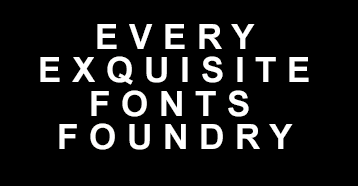History of Economics | Vilfredo Pareto

Recently, while reading the advertising classic “A Technique for Producing Ideas” by James Webb Young, I happened upon a compelling concept: the Pareto Theory, which James discusses in one of the chapters, turned out to be the well-known 80/20 rule I had often heard about but never had the chance to fully explore.
The Pareto Principle, which is widely also known as the “80/20” rule, reveals a fascinating hypothesis: roughly 80% of the effects come from just 20% of the causes. This principle recognizes statistically that most things in life are unevenly distributed. It highlights the imbalance and suggests that a small percentage often accounts for a large portion of the results or resources in various contexts, from economics to productivity.
This mind-boggling theory is named after Vilfredo Federico Damaso Pareto, an Italian economist who significantly contributed to the study of income distribution and the analysis of individual choices, thereby advancing the field of Microeconomics. Along with this, Pareto was also responsible for popularising the use of the term "elite" in social analysis. It was in 1906, that Vilfredo Pareto created a mathematical formula where he observed that twenty percent of the people owned eighty percent of the wealth in Italy.
At its core, this theory suggests that dedicating concentrated effort to what truly matters will yield far more profound results than dispersing your energies across numerous tasks. This focused approach is essential for achieving the results and manifestations you genuinely seek.
Some of the many example of this theory are:
80% of a company's output is generated by just 20% of its employees.
80% of your success is driven by 20% of your ideas.
80% of wealth is held by 20% of the population.
80% of innovation is contributed by 20% of the population.
80% of emotional distress is caused by 20% of the people in your life.
80% of retail sales are attributed to 20% of a store's brands.
And if you view this rule inversely:
20% of the hours in a workday generate 80% of the productivity.
20% of cities house 80% of the population.
20% of people in your life consume 80% of your time.
20% of words in a language account for 80% of all usage.
20% of the population is responsible for implementing 80% of creative ideas.
20% of beer drinkers consume 80% of all beer consumed.
The question now is: should this rule be considered absolute?
While the Pareto Principle is indeed fascinating and often reflects reality, it’s important to remember that measuring life by analytical ratios alone isn’t enough for a truly fulfilling life or fruitful business results. Life isn’t as simple as a Pareto chart; it’s more of a paradox and multi-dimensional. Life’s richness and complexity cannot be fully appreciated through numbers and ratios alone. Success is shaped by a multiple factors that extend beyond just analytics. These include personal ethics, EQ[emotional intelligence], IQ, creative psyche, and the timely interplay of external circumstances.
However, amidst the complexity and layers of life and business, there is indeed one profound takeaway and insight that resonates deeply with me on a personal level. This key takeaway is the idea that focusing on fewer, high-impact efforts can often lead to exponential success, particularly when fueled by a honest passion for manifesting your big dreams that bring noble outcomes to the world.
In conclusion, I would assert that exponential success without gratification of self is as much a failure as no success at all. Ultimately, a rule or a hypothesis gets played well by the one who knows how to play.


留言